Why Won’t My Pressure Washer Start? 7 Likely Reasons
-
Pete Ortiz
- Last updated:
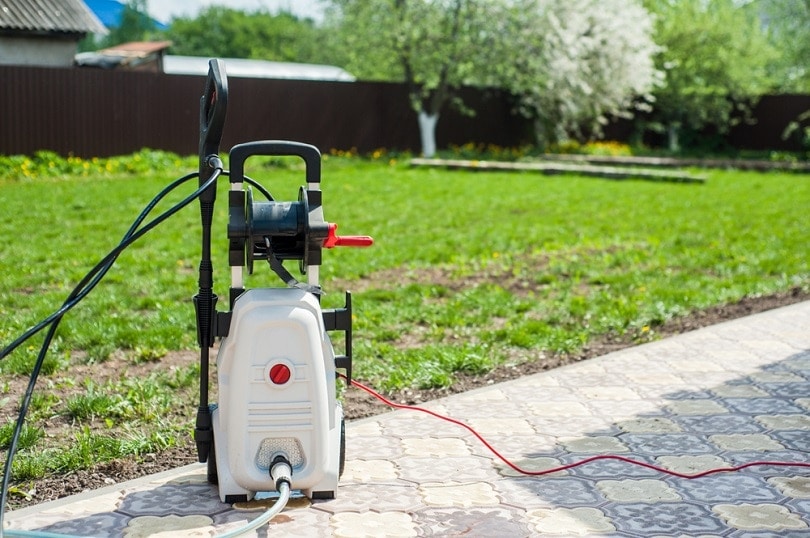
It is all too common to pull out a machine like a pressure washer, go to crank it, and find that the engine will not turn over. There is nothing more frustrating than a small gas engine that won’t start. Engines that won’t start can delay plans, ruin jobs, and cause consternation in the ranks.
Pressure washers commonly have problems starting because they are not used as much as some tools, they are constantly around water, and they are not maintained as heavily as something like a lawn mower. If you can’t get your pressure washer to start, don’t panic. The cause is often something simple and easy to fix.
Here are seven likely reasons that your pressure washer won’t start and some tips on how to deal with them.
The 7 Reasons My Pressure Washer Won’t Start
1. Stale or Old Fuel
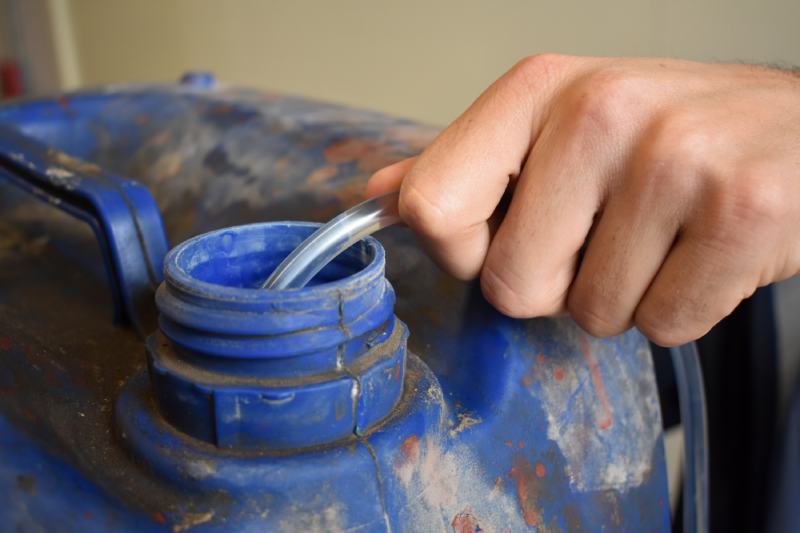
One of the most common causes of a pressure washer failing to start is stale fuel. Few people use their pressure washers regularly. Letting your pressure washer sit for multiple weeks can cause the fuel to get stale. Fuel can go bad in as little as three months. Stale fuel is much harder to start and can clog up the system, preventing you from getting your engine to turn over. If you let your pressure washer sit for too long, you might need to bleed out the old fuel and replenish the system with fresh fuel to get the engine to start.
If you leave stale fuel in place for too long, it can also gum up the carburetor, which is another common problem that prevents pressure washers from starting.
2. Clogged or Damaged Carburetor
A clogged carburetor is one of the most common causes of a pressure washer that won’t start. Carburetors can get clogged by old fuel, dirt, grime, or debris. Dirty or clogged air filters can also cause problems. The air filters are found in the engine, usually by the carburetor. If you have an air filter that is black or filled with leaves, it could cause major problems for your pressure washer. A bad carburetor will prevent your engine from getting the proper mixture of air and fuel that it needs to run. A dirty, broken, or clogged carburetor will prevent your engine from getting the proper fuel and air mixture which can prevent the engine from starting altogether. Sometimes, the engine will start but will quickly cut out after it starts.
You can clean the carburetor at home and free it from debris to help your engine. In extreme cases, you might need to replace the carburetor entirely. You can also clean your air filters, though it is better to replace air filters rather than try to clean them.
3. Old Spark Plugs
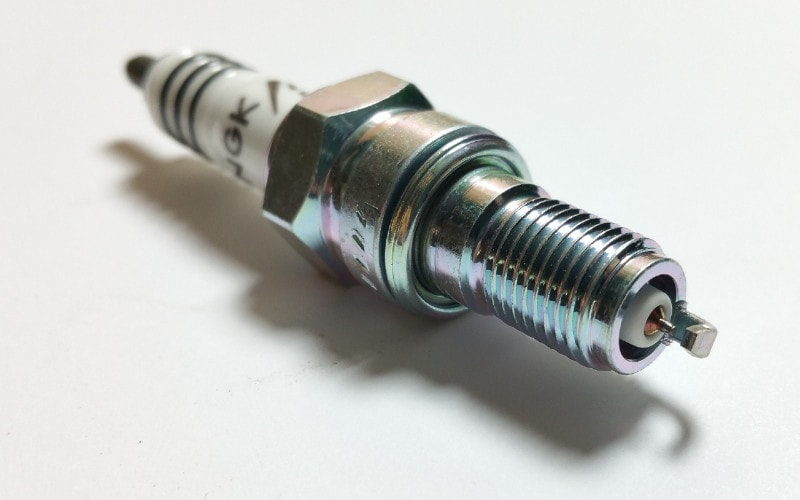
Another common issue that plagues pressure washer engines is bad spark plugs. Spark plugs are required to ignite the fuel mixture and create combustion. If your spark plugs are dirty, old, or bad, it will prevent the necessary spark from igniting the engine and having it turn over. You can clean spark plugs to see if that solves the problem, but in many cases, it is best to replace them. Spark plugs are cheap and easy to replace and swapping them out could quickly fix your pressure washer’s starting problems. Bad spark plugs are often found in older pressure washers or pressure washers that have been started many times. This is not a problem that is too common in newer models.
4. Broken Flywheel Key
A flywheel key is a simple component that connects the crankshaft to the flywheel. This little piece helps transfer force into the flywheel, which in turn stores energy and allows the engine to keep running between strokes. Without the flywheel key, the flywheel cannot store energy, and engines will trip, cough, and cut out. The flywheel key can wear out with extended use, and if it breaks, it can prevent the engine from starting properly or cutting out shortly after turning over.
The flywheel key is tricky to replace and often needs the expertise of a professional to fix or replace it. The repair is not expensive, but it is often outside of the skill level of a regular DIY homeowner.
5. Too Much Pressure Left in the Pump

Another common issue is leaving too much pressure in the pump. Many washers will trip or cut off if there is too much pressure in the system. If you do not bleed the pressure after you are done or release the valve, the pressure will remain inside the system. That pressure will prevent the pressure washer from starting.
If the cord is very heavy or difficult to pull, it could be indicative of too much pressure. Usually, you can simply pull the trigger on the wand to release pent up pressure from the machine. If you forgot to depressurize the machine after the last use, try to bleed the remaining water out and retry the start again. If pressure was an issue, the pressure washer should start up on the next go.
6. Bad Ignition Coil
The ignition coil is a key component of the ignition process in a gasoline engine. The ignition coil is not as well known or understood by regular people as spark plugs are, but it is just as important. The ignition coil takes voltage from the battery and transfers it to the spark plug. The spark plug then produces a spark that ignites the fuel mixture to create combustion. If you believe your spark plugs are in good shape but still can’t get a good ignition, it could be a bad ignition coil. A bad ignition coil prevents the voltage from the battery from being successfully transferred to the spark plugs. Ignition coils are fairly easy to replace.
7. Electric Pressure Washers: Tripped Breaker or Bad Outlet
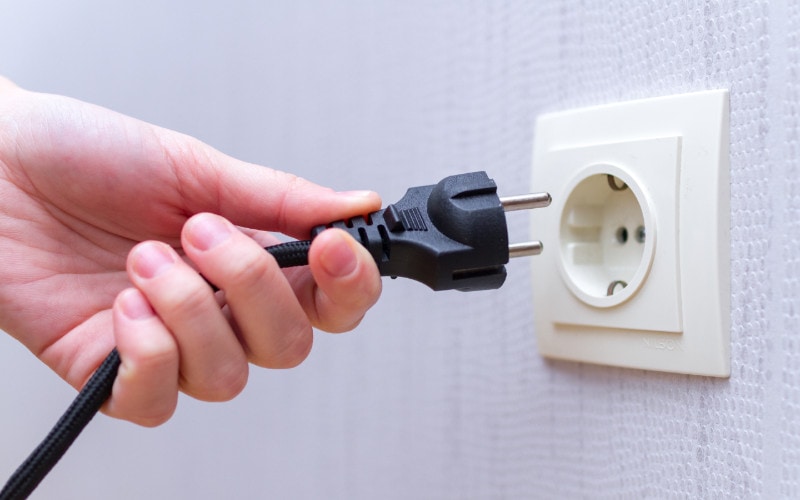
If you plug in your electric pressure washer and hit the switch and nothing happens, it could be a problem with the power source. Electric pressure washers can draw a lot of power and cause the breaker to trip. If you cannot get your pressure washer to turn on, you should check the breaker box to make sure all of the circuits are live. If the breakers are good, you should also check the outlet. You should always be plugging your pressure washer into a GFCI outlet. GFCI outlets can trip themselves and will need to be reset. These are the two most common problems that plague electric pressure washers when it comes to problems with a start.
When You Might Need to Call a Professional
Not all engines can be fixed at home. Sometimes, problems starting can indicate a more serious issue that will require a professional technician to fix. Larger issues can include a cracked engine block, a carburetor that needs to be fully replaced, broken fuel lines, a bent crankshaft, or bad electrical connections. If you’ve tried to fix all of the most common issues at home and are still having no luck getting your machine to start, you might need to bring it into a repair shop to diagnose and fix the problem. Most simple problems can be resolved with a little elbow grease, a few tries, and some research. If you are having prolonged problems starting your pressure washer, you might need to throw in the towel and have the engine looked at.
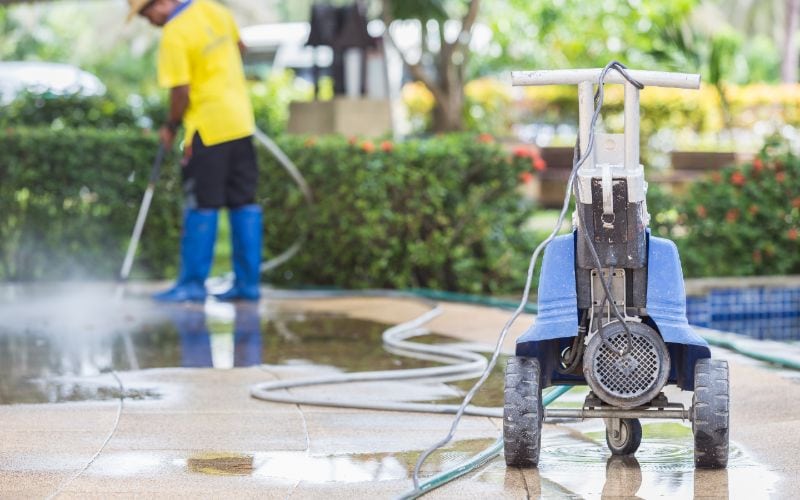
Proper Maintenance Is Key
Once you get your pressure washer starting again, you need to make sure to keep up with basic maintenance. The most common cause of starting issues is poor maintenance. Do not put off basic maintenance for your machine. Your pressure washer needs to be kept clean, you need to maintain fresh fuel, and you should tune it up once per year or have it professionally serviced once per year. Keeping up with a healthy maintenance schedule will reduce the number of starting issues you have going forward.
Conclusion
These are seven common reasons that your pressure washer might not be able to start. Many of these issues can be quickly resolved at home. However, problems starting can be indicative of a deeper underlying issue that might take more work to fix. If you cannot get your pressure washer to start after going through some of these reasons, you might need to have it serviced by a professional. But in many cases, the problem can be linked to one of these common problems.
Featured Image Credit: KIRYAKOVA ANNA, Shutterstock
Contents


